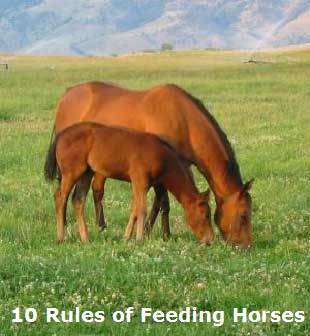Feeding Horses with Environmental Stress: A Comprehensive Guide

Environmental stress can significantly impact a horse’s health and well-being. Understanding how to feed horses during such times is crucial for maintaining their performance and overall condition. This article explores the effects of environmental stress on horses and provides practical feeding strategies to mitigate these challenges.
What is Environmental Stress in Horses?
Environmental stress refers to external factors that disrupt a horse’s normal physiological balance. Common stressors include extreme temperatures, humidity, poor air quality, transportation, and changes in routine or habitat.
| Environmental Stressor | Impact on Horses | Feeding Considerations |
|---|---|---|
| Heat and Humidity | Increased sweating, dehydration | Provide electrolyte supplements, increase water intake |
| Cold Weather | Higher energy demands to maintain body heat | Increase calorie-dense feeds, provide adequate forage |
| Poor Air Quality | Respiratory issues | Avoid dusty feeds, ensure clean water |
| Transportation | Stress-induced appetite loss | Offer palatable, easily digestible feeds |
How Environmental Stress Affects Feeding Behavior
Stress can alter a horse’s appetite and digestion. Horses under stress may eat less or become picky, leading to nutritional deficiencies. Stress hormones like cortisol can affect gut motility and nutrient absorption.
Nutritional Strategies for Managing Environmental Stress
1. Hydration
Maintaining proper hydration is vital, especially in hot or humid conditions. Fresh, clean water should always be available. Electrolyte supplements can help replace minerals lost through sweat.
2. Energy Requirements
Stress often increases energy needs. Providing high-quality forage and energy-dense feeds like grains or fat supplements can help meet these demands.
3. Digestive Health
Incorporate prebiotics and probiotics to support gut flora, which can be disrupted by stress. Avoid sudden changes in diet to prevent colic or diarrhea.
4. Feeding Routine
Maintain a consistent feeding schedule to reduce stress. Small, frequent meals can improve digestion and nutrient uptake.
Sample Feeding Plan Table
| Time of Day | Feed Type | Quantity | Notes |
|---|---|---|---|
| Morning | High-quality hay | 2-3 kg | Ensure free from dust |
| Midday | Electrolyte water | Ad libitum | Especially in hot weather |
| Afternoon | Concentrate feed | 0.5-1 kg | Energy-dense, palatable feed |
| Evening | Forage + supplements | 2-3 kg + vitamins | Support digestion and immunity |
Frequently Asked Questions (FAQ)
Q1: How can I tell if my horse is stressed due to the environment?
A1: Signs include changes in appetite, weight loss, behavioral changes, excessive sweating, and respiratory issues.
Q2: Are there specific supplements recommended during environmental stress?
A2: Yes, electrolytes, vitamin E, selenium, and probiotics are commonly recommended to support health.
Q3: Can feeding changes alone reduce environmental stress effects?
A3: While feeding is crucial, combining it with proper shelter, ventilation, and management practices yields the best results.
Conclusion
Feeding horses under environmental stress requires careful attention to hydration, energy needs, and digestive health. By understanding the specific stressors and adjusting feeding strategies accordingly, horse owners can help maintain their animals’ health and performance even under challenging conditions.
